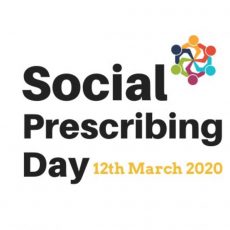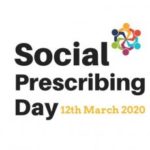 Mr Jones is 72 today. A few years ago, he would have celebrated with friends in the pub, but now the pain in his back makes is hard to go out and he gets tired quickly. So, he’s at home watching TV while his wife cooks a meal. He spends a lot of time watching TV and his back seems to be getting worse, but his GP says there is nothing she can do for him but being more active will help. That’s easy for her to say, he thinks, it’s not her back that’s in agony every time she stands up.
Mr Jones is 72 today. A few years ago, he would have celebrated with friends in the pub, but now the pain in his back makes is hard to go out and he gets tired quickly. So, he’s at home watching TV while his wife cooks a meal. He spends a lot of time watching TV and his back seems to be getting worse, but his GP says there is nothing she can do for him but being more active will help. That’s easy for her to say, he thinks, it’s not her back that’s in agony every time she stands up.
This is a common story in the UK, where musculoskeletal conditions such as chronic back pain are the biggest cause of years lived with disability. Social prescribing has enormous potential to help people like Mr Jones. Here are three things it has to offer:
- You are not alone – one of the single most effective things that will help is peer support. To know that others are in the same situation can reduce the feelings of isolation and provide a source of hints and tips for coping form those who know what they are talking about. A link worker can sign post to the local groups, national helplines and sources of peer support run by our members.
- Keep active – Mr Jones’ GP is right. Even when moving hurts, it can often be the best thing for conditions such as arthritis or back pain. Some people will benefit from a specialist programme such as Good Boost or Escape Pain. Others just need to find a local gym or activity group that is welcoming and encouraging. ARMA has two webinars explaining how fitness and activity providers can help people with MSK conditions be more active. The first of these would also help link workers understand pain and activity so they can better help people in this position.
- Stay connected – Many people lose their social connections when an MSK condition makes keeping in touch more difficult. This can lead to isolation, loneliness and anxiety or depression – all of which make pain feel worse. A link worker supporting someone who has become lonely or isolated needs to ask about problems with pain or mobility. Not everyone will mention this without being asked. A link worker who understands how MSK can impact on the ability to stay engaged can help a person reconnect.
So, on Social Prescribing Day 2020, I would encourage everyone to “think MSK” and find out how social prescribing and community support can make a difference.
Resources to help:
Webinars on activity and fitness: arma.uk.net/physical-activity-msk
Patient organisations offering helplines, information, groups and support:
Arthritis Action
Arthritis Action offers members healthy eating advice, clinical appointments, exercise tips and pain management techniques.
Ehlers Danlos Support UK
Ehlers Danlos Support UK run the only helpline in the UK specifically to help anybody touched by EDS and at a local level, our network of volunteers run local support groups and regional facebook pages to help families, friends and patients.
Fibromyalgia Action UK
Fibromyalgia Action UK offers national helplines on fibromyalgia and benefits issues, an online support forum that is available 24/7 and a UK wide system of support groups.
Hypermobility Syndrome Association
Hypermobility Syndrome Association provides a helpline for support and advice, local support groups, and locally run Facebook groups for peer support.
National Axial Spondyloarthritis Society
NASS provides support and advice on exercising, medication and living with axial SpA (AS) including local groups and an online community forum.
National Rheumatoid Arthritis Society
NRAS provides a freephone helpline, NRAS local groups around the UK, and an online community.
Scleroderma and Raynaud’s UK
SRUK provides a helpline, local support contacts, support groups and an online forum.
UK Gout Society
UK Gout Society provides basic information to people living with gout, their families, friends and carers.
Versus Arthritis
Versus Arthritis provides a helpline, 24/7 arthritis virtual assistant, online community and local groups.

